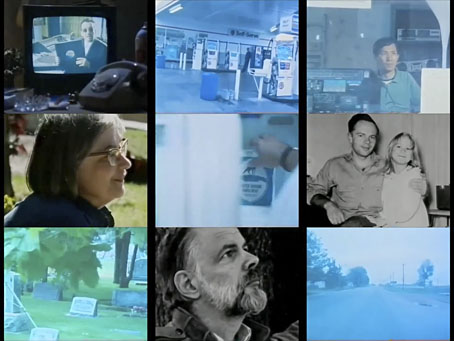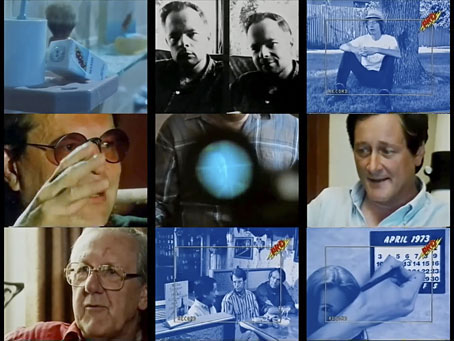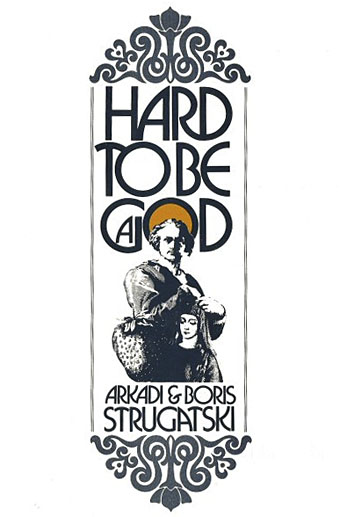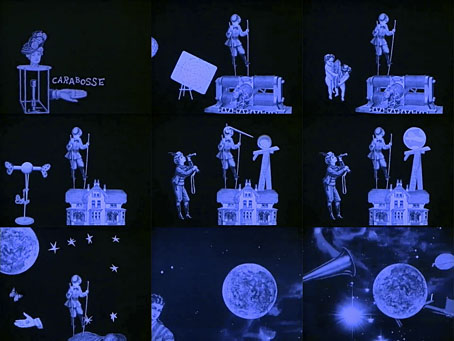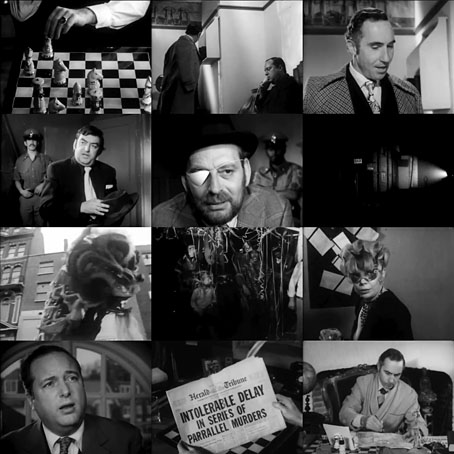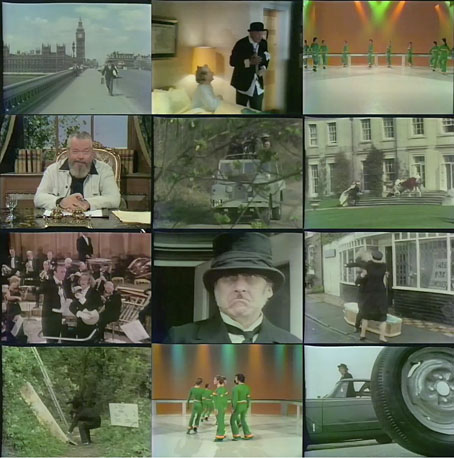
A final Orson Welles post for this week of Wellsiana. Welles was a familiar face on UK television in the early 70s, mostly for the notorious sherry adverts but he was also popular on chat shows. For Anglia Television he presented a number of short story adaptations in Orson Welles’ Great Mysteries, but had nothing else to do with the series. His appearance on The Marty Feldman Comedy Machine (1971) is unusual for being an acting role in a sketch series, with Welles presenting and narrating a film about the preservation of endangered British aristocrats. There’s some crossover here with the London sketches Welles had filmed a couple of years before (see yesterday’s post): Welles played an English Lord in one of those sequences, and one of his co-actors was Tim Brooke-Taylor, a writer on Comedy Machine.
I’d hope that Marty Feldman needs no introduction. Most people know him as Igor in Mel Brooks’ Young Frankenstein but in the late 60s and early 70s he was almost another member of the Monty Python team, writing and performing in the pre-Python At Last the 1948 Show (the origin of the Four Yorkshiremen sketch). The Marty Feldman Comedy Machine, which ran for 14 episodes, is very Pythonesque—there’s even a Terry Gilliam title sequence—but the format is much more traditional. Besides Orson Welles, a highlight of this episode is Spike Milligan reading some of his nonsense poetry, and performing in a sketch about competing undertakers. Watch it here:
• The Marty Feldman Comedy Machine Part 1 | Part 2
Previously on { feuilleton }
• Orson Welles: The One-Man Band
• The Immortal Story, a film by Orson Welles
• Welles at 100
• The Fountain of Youth
• The Complete Citizen Kane
• Return to Glennascaul, a film by Hilton Edwards
• Screening Kafka
• The Panic Broadcast

